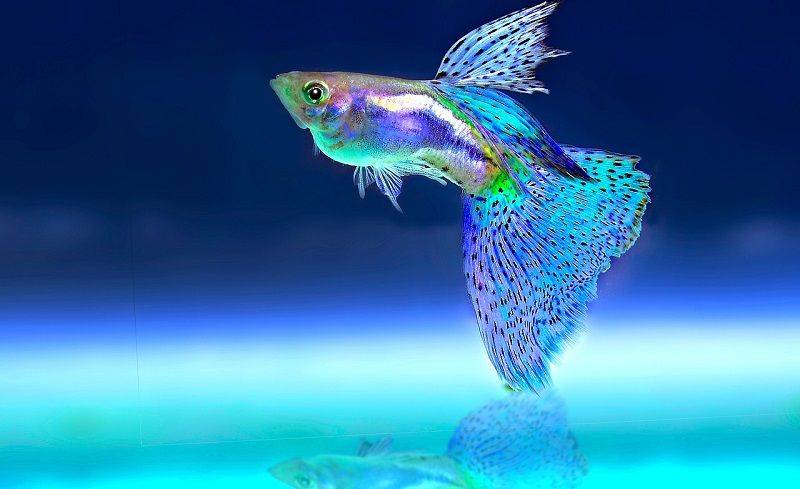Aquarium filters, from the information given by experts, are one of the most critical elements of both marine aquaria and freshwater. And, the process of removing different types of soluble and physical chemicals (waste products) from the aquaria while simplifying the maintenance procedure is known as Aquarium Filtration.
At this moment in time, wide ranges of aquarium filters are available on the online market. And, each one of those different aquarium filters comes with its own designated design and features.
Well, choosing the right kind of filtration system for your fish tank is one of the most vital decisions you have to take if you want the best solution for your fish or other livestock.
Hence, it’s IMPORTANT for you to have an in-depth IDEA about different types of Aquarium Filtration.
Here, we’re going to give a comprehensive discussion on various types of aquarium filtration along with other necessary information you must get acquainted with.
So, without delaying a single more minute, let’s START our informative discussion!

Aquarium Filtration Types
Mainly, there’re 3 different kinds of aquarium filtration that are essential for maintaining a healthy aquarium:
- Mechanical
- Chemical
- Biological
Before you select a random one from the above three aquarium filtration, it’s more than necessary for you to get a clear understanding of these three different filtration systems.
Mechanical Filtration
Mechanical filtration is known to be a procedure where the main function is to remove particulate matter or material from the water. In order to get this process done, a force is given to the water of the aquarium by the use of a special sort of material or media.
And, this media is specially designed with the aim of catching and holding those tiny particles. For Your Information, that media or material can be available in a wide range of forms which include different kinds of filter floss, micron paper pleats, foam, pads, and diatomaceous earth.
Here, at this point, you should keep in mind – this filtration system to be functioned in the most appropriate way, you have to clean all of those tiny particles (materials) trapped by it on a regular basis. In this case, you have to clean those particles before it gets decayed and become as wastage in your aquarium.
Misconception You Must Be Aware Of
In this case of mechanical filtration, there’s a common misconception spread by many of the aquarists – the bigger the size of the mechanical filter, the more amount of fishes you will be able to keep in your aquarium and consequently, your aquarium filter will need less maintenance.
But, trust us; this is not TRUE at all.
You must remember that any kind of mechanical filter will get clogged with the passage of time because of those particulate matters. And, when this kind of circumstance happens, it will affect the water flow in a negative way.
Actually, in that kind of situation, the water flow might get a change in its direction. And, this won’t be good for your fish or any other livestock.
And, when you will face such kind of condition, only then you’ll finally realize to take steps for cleaning your aquarium filter.
On the other hand, when you go for oversizing that mechanical filter, this will create even a nastier situation.
Months will go by and you won’t feel the need of cleaning your aquarium filter. But, in reality, more and more detritus will gather in that filtration system. And, this will decrease the longevity of the filtration system of your aquarium.
Therefore, it’s ideal for you to clean the filtration system of your aquarium on a regular basis in order to increase the longevity of the system.
Chemical Filtration
The main job of chemical filtration is to remove the unwanted chemicals or toxic substances while the water does pass through that chemical resin or media.
In the past few years, the advancement of science and technology has helped us by bringing new and effective chemicals for doing this job of removing toxins in a more efficient way. At the present time, specific chemicals are available on the product that has the capability of removing specific unwanted chemicals or even excessive amounts of nutrients from the aquarium water.
We must let you know that if you can use these chemicals in a proper way, then these resins can work in a powerful way for the improvement of the water quality of your aquarium.
And, to be very honest, this will surely SAVE a lot of your TIME by reducing the maintenance tasks. Consequently, you can expect to provide a healthy aquarium for your fish along with other livestock.
However, you must have to give focus on water chemistry. This will help you to determine when you should take the necessary steps to change the aquarium water.
Biological Filtration
The biological filtration is completely a different sort of aquarium filtration. In this kind of aquarium filtration, the main job is done by different kinds of bacteria. Actually, those bacteria work for converting different types of toxic chemicals inside your aquarium into less-toxic nutrients for your fish.
And, this entire procedure of breaking down performed by the bacteria is known to be as the Nitrogen Cycle.
Now, the question is – how does that Nitrogen Cycle work?
Well, allow us to elaborate on the whole process of how the Nitrogen Cycle really works.
Actually, in an aquarium, different kinds of waste products are found. This wastage basically comes from plants, fish, and invertebrates, along with different other uneaten foods or dead organisms.
The bacteria work for breaking down those waste products and convert into ammonia. But, ammonia is very much harmful because of its toxic level in it. Therefore, another bacteria known as the oxygen-loving bacteria works here for breaking down that ammonia into nitrites.
This special kind of oxygen-loving bacteria is called the Nitrosomonas.
But, the problem still remains because nitrites (lower in toxin quantity) are harmful to your fish.
Therefore, another bacteria known as Nitrobacter comes to play its role by converting those nitrites into comparatively less harmful nitrates.
Now, these nitrates with a lower amount of toxins may not cause any kind of harm to your fish, but this can become a source of some algae issues. In order to control such kinds of algae problems, you have to use the chemical filtration in the most appropriate way while changing the aquarium water at a regular interval.
So, we would recommend you to change the water of your aquarium on a regular basis if you use this biological filtration system in your fish tank.
Aquarium Filter Types:
Now that you have a complete idea about different types of aquarium filtration systems or types, it’s time we should have a brief discussion on different types of aquarium filters.
This discussion will help you to choose the right kind of filtration system for your home aquarium.
Box Filters
This kind of filter is also known as internal filters or corner filters.
You will be amazed to hear the fact that the box filters are known to be the first aquarium filters that came in the market for the home aquariums.
Canister Filters
The canister aquarium filter is mainly known to be a powerful mechanical filter that is ideally designed to serve the medium and large-sized fish tanks (40+ gallons). And, this type of filter is placed outside your fish tank.
Diatomic Filters
The diatomic filter is an exclusive kind of aquarium filter that mainly works for polishing the water of your aquarium through eradicating all of those small particles.
Fluidized Bed Filters
In comparison to the earlier aquarium filters, the fluidized bed filter is more of a newcomer in the market. It is a special kind of biological filter that usually works with the help of silica chips or sand as the filter media.
Power Filters
The power filter is also known by the name hang-on-back aquarium filter. And, you should remember that it is the most common and widely used aquarium filter at the present time.
Sponge Filters
The sponge filter is another efficient and powerful aquarium filter that has earned popularity from all around the world.
Trickle Filters
This kind of aquarium filter is also known as the dry-wet aquarium filter.
Under Gravel Filter
The Under Gravel Filter (in short – UGF) is another great aquarium filter that has been serving for a long period of time.
Final Words
So, this is all about our discussion about aquarium filtration and its types along with all the details you must be aware of.
We believe that our comprehensive discussion on aquarium filtration has given you an overall idea about the mentioned piece of the subject matter.
However, if you think that we may have missed any important detail to explain in our detailed discussion, then do not feel any kind of hesitation to inform us.
We will certainly give value to the opinions of our readers and reply to you back with suggested feedback.
Good-Bye!
